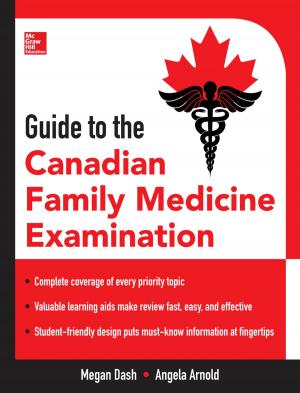I Don't Know What It Is But I Don't Think It's Serious
Confidence and decisiveness in primary care
Nonfiction, Health & Well Being, Medical, Specialties, Family & General Practice, Reference, Education & Training| Author: | Tim Crossley | ISBN: | 9780850843613 |
| Publisher: | Royal College of General Practitioners | Publication: | September 1, 2008 |
| Imprint: | Royal College of General Practitioners | Language: | English |
| Author: | Tim Crossley |
| ISBN: | 9780850843613 |
| Publisher: | Royal College of General Practitioners |
| Publication: | September 1, 2008 |
| Imprint: | Royal College of General Practitioners |
| Language: | English |
I Don’t Know What It Is but I Don’t Think It’s Serious provides a broad analysis of the issues behind medical confidence and decision making. It looks at how the GP role is seen and the status that backs it, and explores the issues patients and others bring to the consultation. The book also covers: • practical communication skills around the issue of uncertainty, such as teasing out reasons for attendance and reassurance techniques • sharing the burden with patients • dealing with things that have gone wrong • using the same skills we acquire for good consulting to become better organised and more effective • informing our personal development plans. The book does not solve all a GP’s problems. It seeks to understand the ones that undermine us and help us to cope, to enjoy and to look forward to the uncertainty of whatever is going to happen tomorrow. The book supports the need for using communication skills training as the basis for both registrar and ongoing medical education, trying to make these seem solutions rather than problems. All chapters are lightly referenced and have a conclusion, with anecdotal text boxes peppered amongst the text to ease the strain of reading.
I Don’t Know What It Is but I Don’t Think It’s Serious provides a broad analysis of the issues behind medical confidence and decision making. It looks at how the GP role is seen and the status that backs it, and explores the issues patients and others bring to the consultation. The book also covers: • practical communication skills around the issue of uncertainty, such as teasing out reasons for attendance and reassurance techniques • sharing the burden with patients • dealing with things that have gone wrong • using the same skills we acquire for good consulting to become better organised and more effective • informing our personal development plans. The book does not solve all a GP’s problems. It seeks to understand the ones that undermine us and help us to cope, to enjoy and to look forward to the uncertainty of whatever is going to happen tomorrow. The book supports the need for using communication skills training as the basis for both registrar and ongoing medical education, trying to make these seem solutions rather than problems. All chapters are lightly referenced and have a conclusion, with anecdotal text boxes peppered amongst the text to ease the strain of reading.















